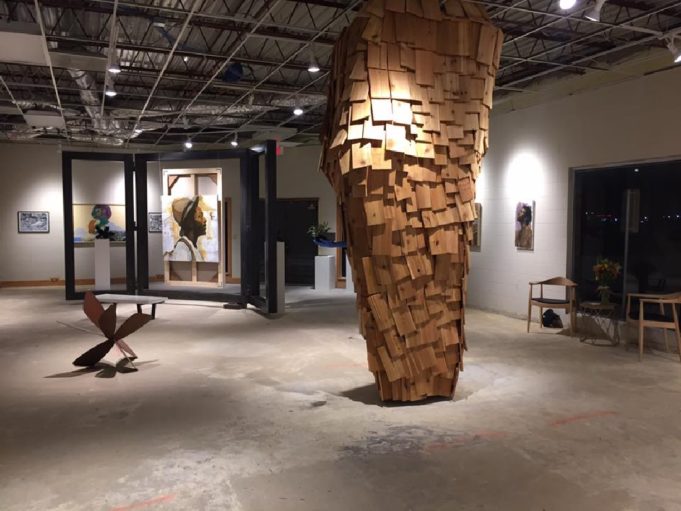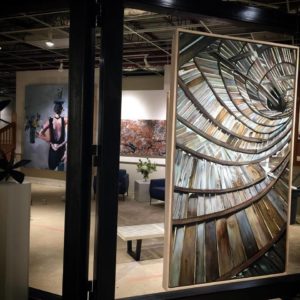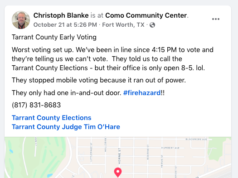When I’m not making art, I’m writing about art, and when I’m not doing that, I’m curating exhibitions. I’ve easily listened to over 100 artists give lectures about their works, visited hundreds of exhibitions, and have had thousands of conversations with artists, curators, and critics. My sense is that a lot of what happens around this topic takes place outside of museums and galleries. And I’d like to share those heated conversations about what’s mind-blowing and what blows, the lectures, the articles, and the shows.
Some of those conversations lately have hovered around art and politics, both the politics of government and the politics of institutions. How should artist respond to the world in which they live? Should they stick to art and leave the problems of the world to folks better equipped to talk about them? Great conversations come from these artists, who consider this a conflict. It would be interesting to share those conversations in the context of the art they’re making.
Another topic of discussion lately has been the need for stronger voices in art criticism of Fort Worth artists. We seem too small a city to be covered by most Texas art critics, and the ones here are mostly sympathetic to the few galleries and artist-run spaces. The level of criticism required to educate the public and support artists who survive this process is more then any one critic, magazine, or blog can tackle. So it is with a steady pen that I press ink to paper and add another voice to the fray.
I’d hoped that Gallery night would be a great jumping off point, but it was the same predictable fare.
It’s not enough for exhibitions to be beautifully executed renderings of the physical world or otherwise abstract expressions of it. There has to be a stronger connection either in gravitation towards or in opposition to the forces that make art what it is. There also has to be critical pushback against artist to help them clarify their ideas and continue their dedication to what they’ve decided to do with their lives. There is a symbiotic relationship between artists, critics, and the public, and each has an important role to play.
It is with this in mind that I have high hopes for Fort Works Art, the newest art space in the city. It is a great space, in a great location. I hope they hire a curator/gallery manager that goes for content over volume, and pares down to fewer artists with strong content in their work.
The exhibit at the cultural district space last Saturday felt like a decision to include every artist the gallerists knows, and that makes the event more of an art fair than a curated show. But then, it also feels like more of an artist studio open house than a gallery, because the curators also have work in the show. It’s like a bookstore owner putting their own published books in the window along with the authors they’re promoting. As good as that book may be, it feels like a conflict of interest.
I want to go back and spend more time in the space, because there was way too much to see that night and too little time.
Two other shows that happened last weekend were overshadowed by gallery night –– Sebastiaan Bremer: Recording Studio A at Fort Worth Contemporary Art and Viva La Vulva at the Fairmount Public Library. The former will be the focus of my next post, and the latter was a cheeky exhibit/auction that was everything I’d hoped for on gallery night. It had a strong curatorial voice, and it unapologetically celebrated the theme of the show.













